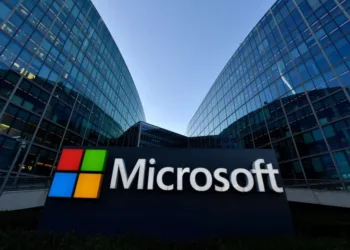The highly anticipated NVIDIA GeForce RTX 5070 is set to hit the market in just two days, and retail listings have already started to emerge. A major retailer, B&H Photo Video, has added several custom editions from brands like Gigabyte, ASUS, and PNY, and surprisingly, both base and factory-overclocked (OC) models are listed at the same MSRP of $549.
Table of Contents
RTX 5070 Retail Listings Confirm Competitive Pricing
Retailers often prepare for launch by listing products in advance, but it’s rare to see overclocked variants priced identically to their base models. Typically, factory-overclocked GPUs carry a premium due to enhanced clock speeds and cooling solutions. However, B&H Photo Video currently features four GeForce RTX 5070 GPUs, all priced at $549:
- ASUS Prime GeForce RTX 5070 – $549
- Gigabyte GeForce RTX 5070 WindForce OC SFF – $549
- PNY GeForce RTX 5070 OC Triple Fan – $549
- Gigabyte GeForce RTX 5070 WindForce SFF – $549
This marks the first time in the RTX 50 series lineup that a GPU is launching at its originally stated MSRP. Previously, Best Buy listed the ASUS Prime RTX 5070 base model at the same price, but this is the first instance where OC models have been included in that price bracket.
Why This Pricing is a Big Deal
The RTX 50 series has had a tumultuous launch cycle, with various models suffering from price hikes and availability issues. Many vendors have increased the MSRP for their custom models, as seen recently with MSI’s RTX 5070 Ti pricing. However, NVIDIA’s decision to keep both base and OC models at $549 could indicate an effort to maintain competitive pricing amid rising concerns over availability.
Pricing stability in the GPU market is something that gamers and PC enthusiasts have long been hoping for. Over the past few years, the industry has experienced price volatility due to supply chain disruptions, increased demand, and the boom of cryptocurrency mining. With GPUs often selling above MSRP, consumers have become frustrated with the limited availability and high costs. If NVIDIA manages to maintain stable pricing and availability, it could win back the trust of many gamers who have been hesitant to upgrade due to previous price surges.
Potential Stock Shortages & AMD’s Competitive Edge
Despite the favorable pricing, reports suggest that the RTX 5070 may face stock shortages similar to other RTX 50 GPUs. If supply constraints emerge, AMD’s RX 9070, which promises superior performance at the same price point, could become a more attractive option for gamers.
The competition between NVIDIA and AMD has always been fierce, and this generation is no different. AMD is banking on its RX 9000 series to outshine NVIDIA’s offerings, particularly in terms of price-to-performance ratio. If the RX 9070 indeed delivers better performance at the same cost, AMD could pose a significant challenge to NVIDIA’s market dominance. However, availability will play a crucial role—if AMD suffers from stock shortages as well, consumers may have limited options, forcing them to settle for what is available rather than what is best.

RTX 5070 Specifications: A Worthy Successor?
The GeForce RTX 5070 succeeds the RTX 4070 and comes with impressive specifications:
- 6144 CUDA Cores
- 12GB GDDR7 VRAM
- GB205 Die Architecture
- 250W TDP (higher than the RTX 4070)
While the increased power consumption may raise concerns, it’s expected to deliver better performance, making it a strong contender in the mid-range gaming GPU market. The RTX 5070 also benefits from architectural improvements, offering better ray tracing capabilities, AI-driven performance boosts, and enhanced DLSS support. These improvements make it an attractive option for gamers looking to upgrade their rigs without overspending on high-end models like the RTX 5080 or RTX 5090.
How Does the RTX 5070 Compare to the RTX 4070?
Many gamers contemplating an upgrade will wonder whether the RTX 5070 is a significant step up from its predecessor, the RTX 4070. While both cards share similarities, the newer model boasts more CUDA cores, faster memory, and a higher power draw, which translates into improved gaming performance.
Benchmarks indicate that the RTX 5070 offers up to a 20-25% performance increase over the RTX 4070, making it a compelling upgrade. The faster GDDR7 memory also helps reduce latency, providing smoother gameplay and better frame rates in demanding titles.
What About the RTX 5070 Ti?
For those wondering whether to wait for the RTX 5070 Ti, there are a few factors to consider. The Ti version will likely offer a further performance boost, but at a higher price point. Recent trends suggest that the RTX 5070 Ti could retail for around $699-$749, making it significantly more expensive than the standard RTX 5070. If budget is a concern, the RTX 5070 remains a great choice, offering high-end performance at a mid-range price.
Availability & Market Impact
The biggest question surrounding the RTX 5070 launch is availability. If NVIDIA manages to keep supplies steady, the RTX 5070 could become one of the most sought-after GPUs of the year. However, if shortages occur, prices could skyrocket due to third-party resellers and scalpers—a problem that has plagued the GPU market for years.
Retailers like Best Buy, Newegg, and Micro Center are expected to carry stock, but demand will likely be high. Those eager to purchase the RTX 5070 should keep an eye on pre-orders and launch-day stock updates to secure a unit at MSRP before resellers take advantage of limited availability.

Final Thoughts: Should You Buy the RTX 5070?
If the MSRP of $549 holds and availability remains stable, the RTX 5070 could be a solid upgrade for gamers looking for next-gen performance without breaking the bank. The card offers significant improvements over its predecessor, making it a smart choice for those looking to future-proof their gaming setups.
However, potential buyers should also consider AMD’s upcoming RX 9070, which could shake up the mid-range GPU market if it delivers better performance at the same price. Competition between AMD and NVIDIA will ultimately benefit consumers, pushing both companies to offer better value and competitive pricing.
Key Takeaways:
- RTX 5070 launches at $549, including OC models, which is unusual.
- First RTX 50 series GPU to stick to its MSRP.
- Performance is expected to be 20-25% higher than the RTX 4070.
- Potential stock shortages could affect availability.
- AMD RX 9070 could be a strong competitor.
If you’re considering upgrading your GPU, the RTX 5070 is shaping up to be an excellent option. Just make sure to act fast before stocks run out!








